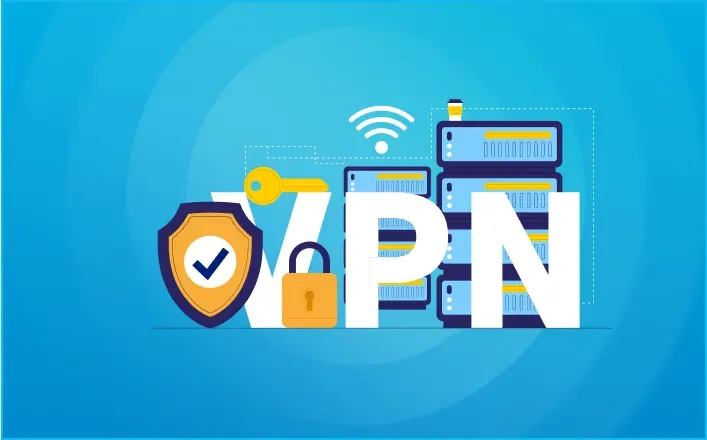- Product
-
Solution
-
By Industry
Cybersecurity solutions tailored to your industry’s needs.
-
- Resources
-
Books
Our ultimate guides and playbooks
Solution Briefs
Overview of PureDome’s functionality
-
Quizzes
Assess your cybersecurity readiness
Case Studies
PureDome customer success stories
Newsletter
Subscribe to the PureDome newsletter
-
- About Us
- Partner
- Pricing
- Download
Which VPN Protocol Is Most Secure?
-
Aiman Ikram
-
30 Jan 2024
- 3 min read

-1.webp?width=864&height=418&name=cover%20(26)-1.webp)
In our increasingly interconnected digital world, ensuring online privacy and security is paramount. This has led to the widespread adoption of Virtual Private Networks (VPNs). However, not all VPNs are created equal, and the choice of VPN protocol can significantly impact your online security. In this comprehensive guide, we will explore the realm of VPN protocols, dissecting their intricacies to answer the fundamental question: Which VPN protocol offers the highest level of security?
Understanding VPN Protocols
Before we delve into the specifics, it's crucial to establish a clear understanding of what VPN protocols are and why they are vital in the realm of online security.
How Do VPN Protocols Work?
VPN protocols are a set of rules and encryption methods that dictate how data is transmitted and secured across a VPN network. Essentially, they form the backbone of VPN technology, defining how data is encapsulated and encrypted to ensure a secure and private connection.
When you connect to a VPN server, your data is encapsulated within a secure tunnel and encrypted, making it impervious to prying eyes, including hackers, ISPs, and government agencies. Additionally, VPN protocols play a crucial role in authenticating both the user and the server, further fortifying the security of the connection.
Exploring Different Types of VPN Protocols
There exists a plethora of VPN protocols, each with its own set of strengths and weaknesses. Let's embark on an exploration of some of the most prominent ones:
1. OpenVPN
OpenVPN stands tall as one of the most widely acclaimed VPN protocols for security. Its open-source nature means that security experts can continually scrutinize its code for vulnerabilities. OpenVPN supports robust encryption ciphers, including the highly secure AES, making it an excellent choice for privacy-conscious individuals and organizations.
2. IKEv2/IPsec
IKEv2 (Internet Key Exchange version 2), when combined with IPsec (Internet Protocol Security), constitutes a formidable contender in the VPN protocol arena. It offers an exceptional level of security and is renowned for its stability. IKEv2's ability to swiftly re-establish connections, particularly on mobile devices, makes it a preferred choice for those who prioritize reliability.
3. WireGuard
WireGuard is a relatively recent addition to the VPN protocol landscape. Its simplicity and efficiency have garnered significant attention. While not as widespread as some other protocols, WireGuard's emphasis on performance and security makes it a promising option for the future.
4. SSTP
Developed by Microsoft, SSTP (Secure Socket Tunneling Protocol) offers robust security when used in conjunction with AES encryption and SSL. However, its proprietary nature means that it lacks the independent verification inherent in open-source protocols, raising concerns about potential vulnerabilities.
5. L2TP/IPsec
L2TP (Layer 2 Tunneling Protocol), when combined with IPSec, provides improved security compared to older protocols like PPTP. However, it does have vulnerabilities in its method of exchanging public keys, which could potentially be exploited by determined attackers.
6. PPTP
PPTP (Point-to-Point Tunneling Protocol), while easy to set up, is considered less secure due to its outdated encryption methods and authentication process.
Identifying the Right VPN Protocol for Your Needs
Now that we have a thorough understanding of these VPN protocols, let's address some common questions to help you determine which one aligns best with your specific requirements.
What Is the Fastest VPN Protocol?
When it comes to speed, WireGuard often leads the pack. Its streamlined design results in faster connections, making it an excellent choice for users who prioritize speed without sacrificing security.
What Is the Most Secure VPN Protocol?
Security-conscious users frequently gravitate towards OpenVPN. Its open-source nature, robust encryption, and rigorous code scrutiny make it a solid choice for those seeking the highest level of security.
Which VPN Protocol Is the Most Stable?
IKEv2/IPsec is renowned for its stability, particularly in scenarios where network connections may be interrupted, such as on mobile devices. It excels at maintaining a reliable VPN connection.
What Is the Easiest VPN Protocol to Set Up?
For simplicity and seamless integration, SSTP is a solid choice, especially for Windows users. Its close ties to the Windows operating system make setup straightforward.
Conclusion
In the pursuit of online security and privacy, the choice of VPN protocol holds immense significance. While OpenVPN shines as a robust and open-source option, IKEv2/IPsec, WireGuard, and SSTP each bring their unique strengths to the table. Your decision should consider your specific security needs, the devices you use, and your preferences regarding speed and convenience. Ultimately, the most secure business VPN protocol is the one that aligns best with your unique requirements. Stay secure, safeguard your online privacy, and choose wisely!
Frequently Asked Questions
Is there a one-size-fits-all VPN protocol that suits everyones security needs?
No, the choice of VPN protocol depends on various factors, including your specific security requirements, the devices you use, and your desired level of convenience.
Are proprietary VPN protocols inherently less secure than open-source alternatives?
Proprietary protocols, like SSTP, may offer unique security advantages but lack the transparency and ongoing scrutiny characteristic of open-source protocols like OpenVPN.
Can I switch my VPN protocol based on my needs and preferences?
Many VPN services offer protocol options, allowing you to switch between them depending on your preferences and specific security requirements.
Are there any known vulnerabilities in these VPN protocols?
Security vulnerabilities can emerge, so it's crucial to use up-to-date software and stay informed about any reported issues or updates.
Stay up to date with the latest cybersecurity insights and best practices
Get the latest information, stories, and resources in your inbox. Subscribe for monthly updates.
Securing 1000+ Businesses Across The World